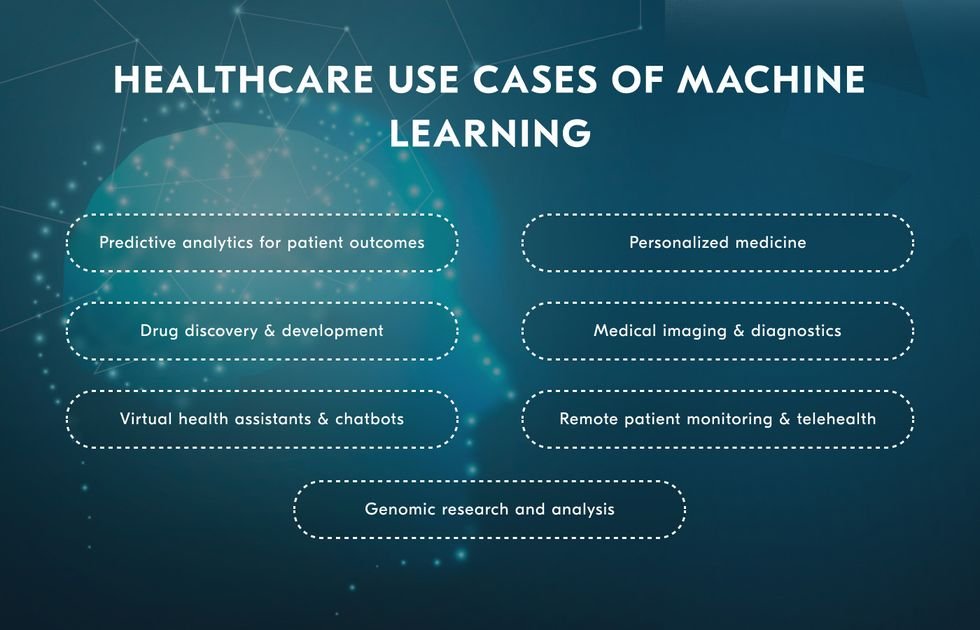
Introduction
Overview of Machine Learning in Healthcare Data
In recent years, machine learning has emerged as a game-changer in the healthcare sector, unlocking the potential to analyze vast amounts of data for valuable insights. Imagine physicians equipped with algorithms that assess patient histories in seconds, flagging potential complications before they arise. This innovative technology is revolutionizing various areas such as diagnostics, treatment recommendations, and patient monitoring.
Significance and Impact of Machine Learning in Healthcare
The significance of machine learning in healthcare cannot be overstated. Here are some key impacts:
- Enhanced Decision-Making: Clinicians can make evidence-based decisions quicker and more accurately, improving patient outcomes.
- Cost Efficiency: Predictive analytics helps in reducing unnecessary tests and hospitalizations, ultimately saving money for both providers and patients.
- Personalized Medicine: By analyzing individual patient data, machine learning offers tailored treatment options, making healthcare more targeted.
As we delve deeper into the challenges of machine learning in healthcare data, it’s clear that overcoming these hurdles can lead to groundbreaking advancements in patient care.
30149-4/asset/463941b2-5bf7-432d-b521-a2779eddc9ac/main.assets/gr1_lrg.jpg)
Challenges in Data Collection
Quality and Quantity of Healthcare Data
Despite the promising advancements machine learning offers, one of the foundational challenges lies in data collection. The quality and quantity of healthcare data can vary significantly, impacting the reliability of algorithms.
- Incomplete Records: Often, patient data is missing or inaccurately recorded.
- Inconsistencies: Different healthcare providers may use various terminology or formats, complicating data aggregation.
- Limited Datasets: Small datasets can lead to overfitting, making models less generalizable.
Imagine a scenario where a machine learning model is trained on incomplete datasets—this can lead to misdiagnosis or inappropriate treatment suggestions.
Privacy and Security Concerns in Healthcare Data
Another critical challenge is the privacy and security of healthcare data. With regulations like HIPAA and GDPR, ensuring compliance is paramount.
- Data Breaches: Sensitive health information is a prime target for cyberattacks, potentially exposing personal data.
- Patient Consent: Navigating consent for data use while balancing the need for comprehensive datasets can be tricky.
As these obstacles persist, the journey toward effective machine learning in healthcare is fraught with complexities that demand attention and innovation.
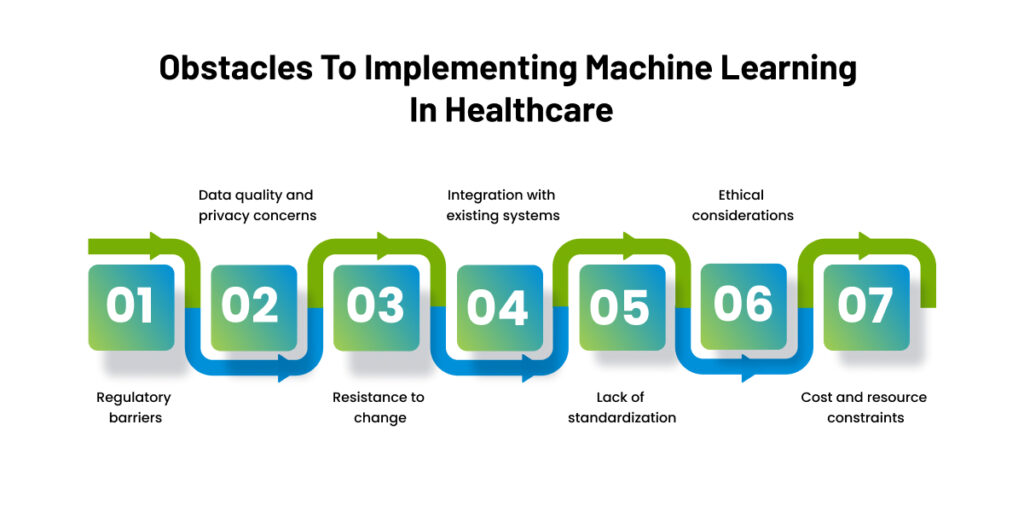
Ethical Considerations in Machine Learning
Bias and Fairness Issues in Healthcare Algorithms
As the healthcare sector increasingly adopts machine learning, ethical considerations are at the forefront. One pressing concern is bias in algorithms. Machine learning models often reflect the data they are trained on, which can lead to unintended prejudice against certain groups.
- Underrepresented Populations: If certain demographics are underrepresented in training datasets, the model may not perform well for those groups.
- Historical Inequities: Algorithms trained on biased historical data can perpetuate disparities in healthcare access and treatment.
For instance, if a model is less effective for minority groups, it can lead to poorer health outcomes.
Transparency and Accountability in Healthcare Data Processing
Transparency and accountability are equally vital in healthcare data processing. Stakeholders must understand how algorithms reach conclusions, promoting trust and ethical practices.
- Clear Documentation: Algorithms should be accompanied by comprehensive documentation explaining their design and functionality.
- Audit Trails: Establishing processes for accountability can help track decisions made by machine learning systems.
Ethically navigating these considerations is crucial to ensuring that the benefits of machine learning in healthcare are equitably distributed, fostering trust among patients and providers alike.

Interpretability and Explainability
Understanding Black Box Models in Healthcare
As the healthcare sector embraces machine learning, one significant hurdle remains: the “black box” nature of many advanced models. These models can generate remarkably accurate predictions, but they often lack transparency.
- Obscured Decision Processes: Healthcare professionals may struggle to understand how a model arrived at a particular diagnosis or treatment recommendation.
- Risk of Misunderstanding: Without clarity, clinicians may hesitate to trust their findings, potentially stalling the integration of valuable tools.
Imagine a doctor receiving a treatment recommendation backed by complex algorithms but finds it difficult to decipher how the model reached that conclusion. This uncertainty can hinder effective decision-making.
Importance of Interpretability for Healthcare Professionals
Interpretability is crucial for healthcare professionals to foster confidence in machine learning applications.
- Building Trust: Clear insights into how algorithms work can alleviate concerns about reliability.
- Facilitating Patient Communication: When doctors understand the rationale behind recommendations, they can better explain decisions to patients, enhancing the care experience.
A smooth balance of advanced analytics and human understanding is essential for ensuring that machine learning truly enhances healthcare delivery.
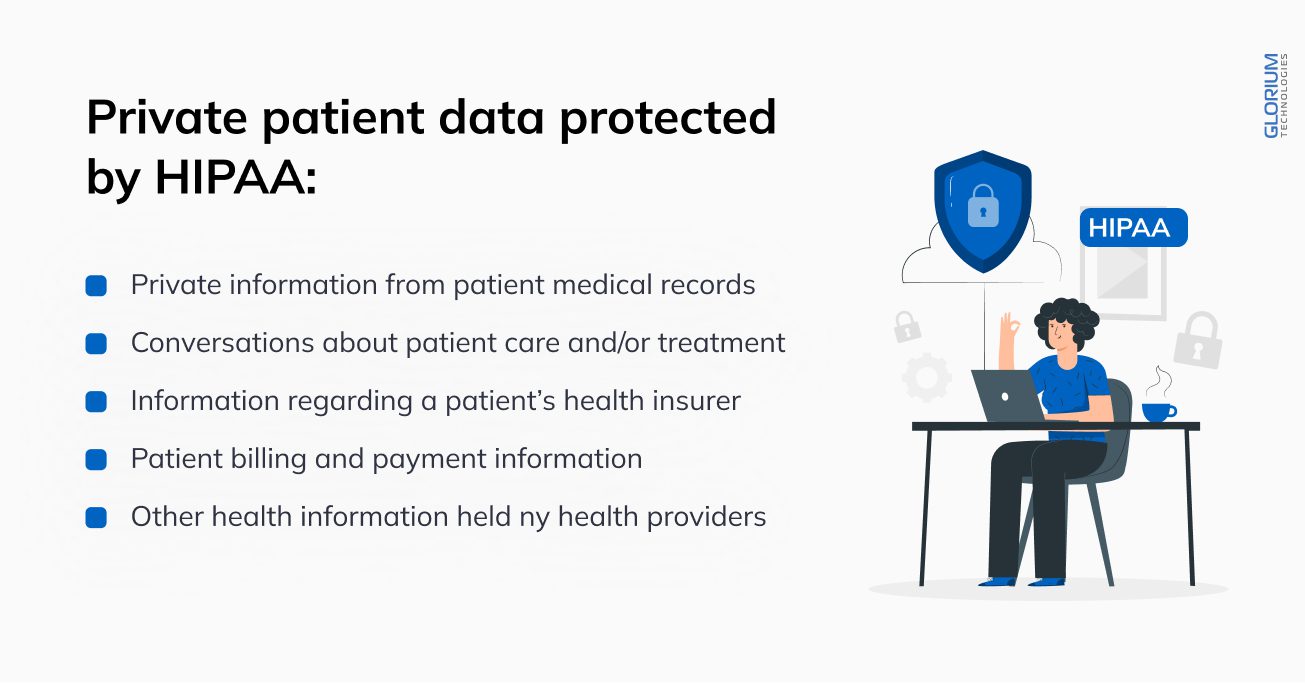
Regulatory Compliance and Legal Implications
Compliance with HIPAA and GDPR Regulations
As machine learning becomes more prevalent in healthcare, adherence to regulatory frameworks like HIPAA and GDPR is paramount. These regulations are designed to protect patient privacy and ensure the secure handling of sensitive data.
- HIPAA (Health Insurance Portability and Accountability Act): In the U.S., HIPAA mandates strict guidelines on how patient information is stored, processed, and shared. Non-compliance can result in hefty fines and legal repercussions.
- GDPR (General Data Protection Regulation): For organizations operating in Europe, GDPR enforces stringent requirements for data consent, access, and security, affecting how healthcare data can be utilized for machine learning purposes.
Compliance is not only a legal obligation but also enhances patient trust by demonstrating commitment to data privacy.
Legal Challenges in Implementing Machine Learning in Healthcare
Beyond compliance, legal challenges are a significant consideration in the implementation of machine learning algorithms.
- Liability Issues: Questions about who is accountable if an algorithm makes an error can create legal gray areas.
- Intellectual Property: Protecting proprietary algorithms in a competitive healthcare environment adds another layer of complexity.
Navigating these regulatory waters is crucial for healthcare organizations to ensure that they harness the benefits of machine learning while minimizing legal risks.
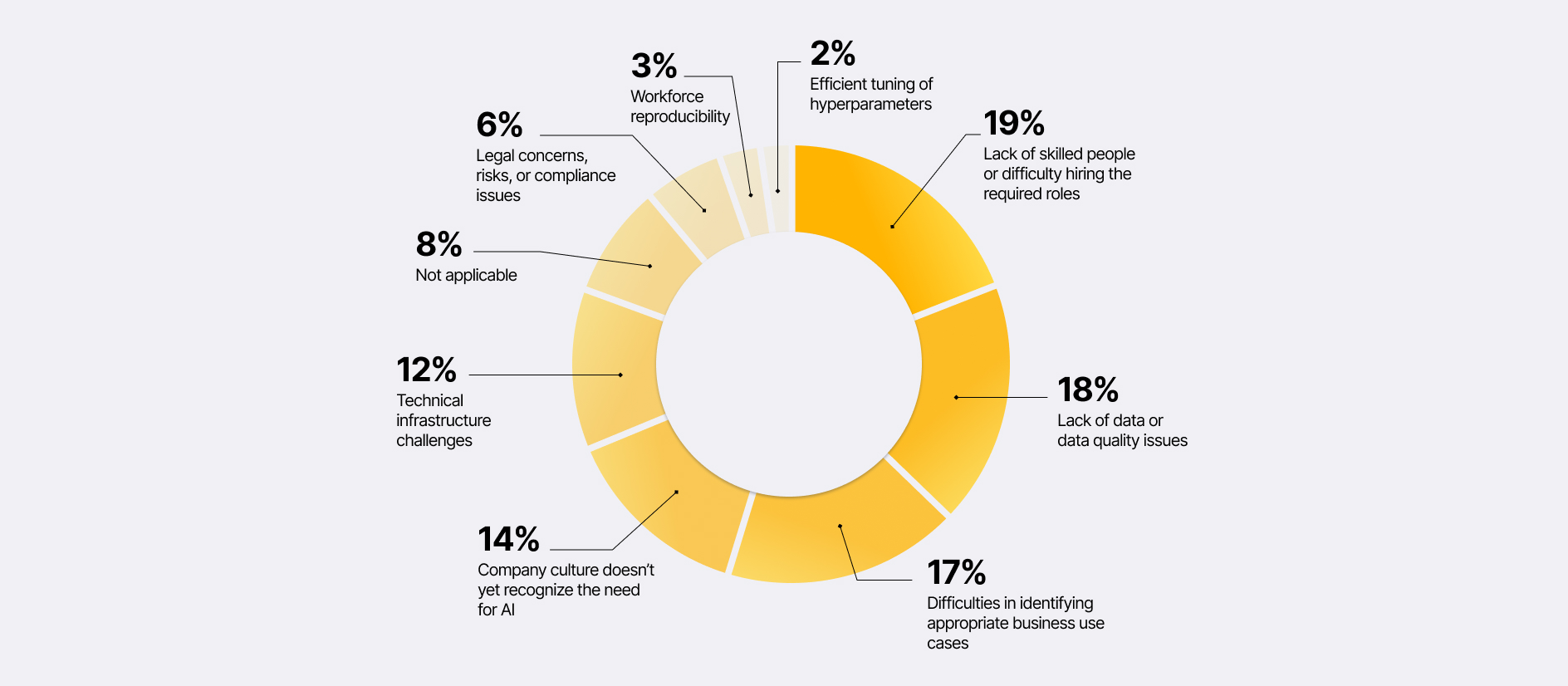
Integration and Adoption Hurdles
Resistance to Technological Change in Healthcare
While machine learning offers immense potential in healthcare, integrating these advanced technologies often meets resistance. Change can be daunting, especially in a field that prioritizes proven methods and established practices.
- Cultural Barriers: Many healthcare professionals may feel overwhelmed by new technologies, fearing that their roles may be diminished.
- Skill Gaps: A lack of training and familiarity with machine learning can contribute to hesitance among staff.
For example, consider a hospital looking to implement a predictive analytics tool. If the staff isn’t adequately trained, they may rely on traditional methods, slowing down progress.
Challenges in Integrating Machine Learning Solutions into Existing Systems
Moreover, the integration of machine learning solutions with existing healthcare systems can be complex.
- Interoperability Issues: Legacy systems may not easily accommodate modern algorithms, hindering data sharing.
- Resource Constraints: Limited budgets and personnel can pose significant obstacles to deploying new technologies.
Addressing these integration and adoption hurdles will be crucial for unlocking the full transformative potential of machine learning in healthcare. Engaging staff, offering robust training, and ensuring system compatibility can pave the way for a smoother transition.
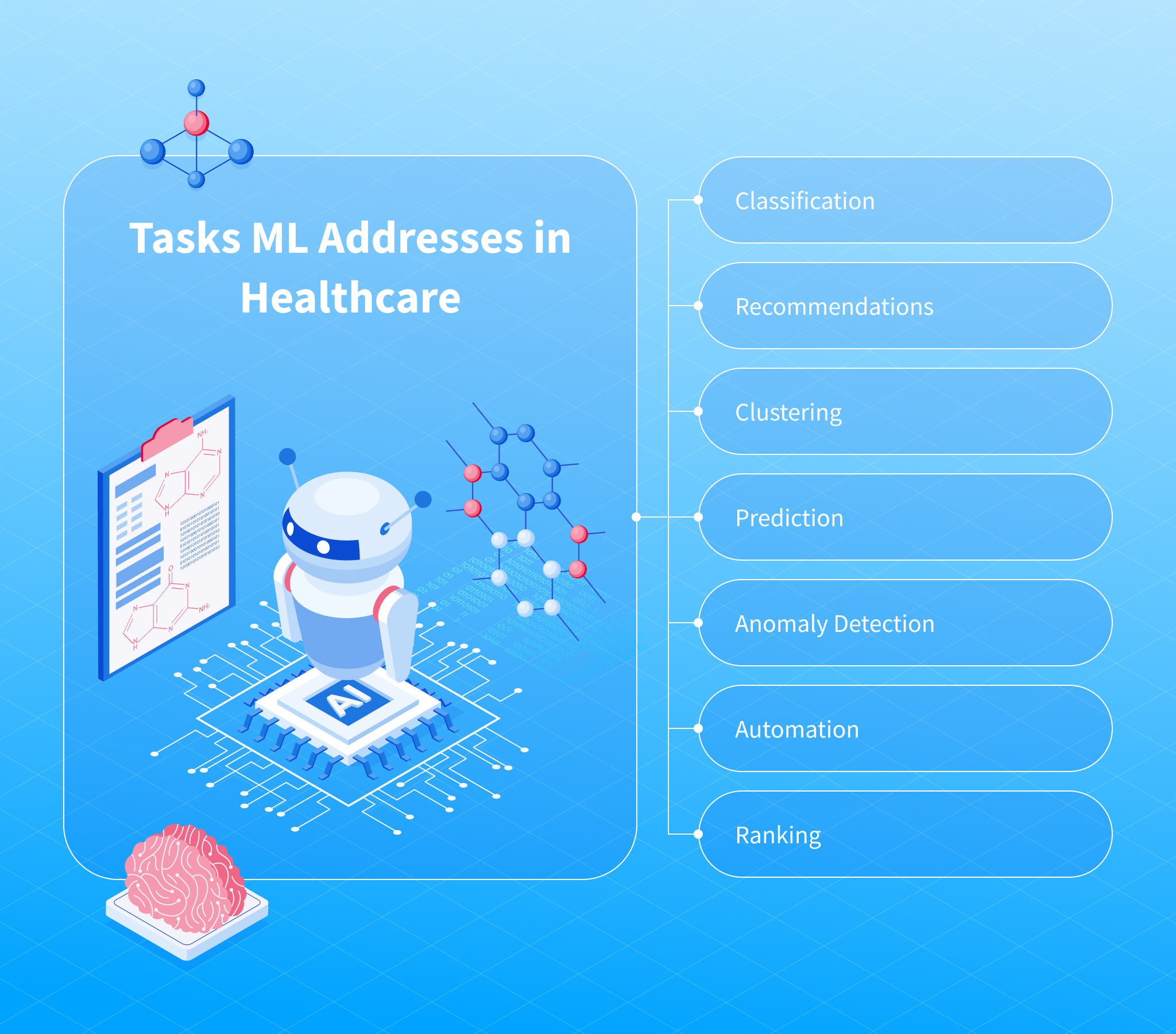
Data Quality and Standardization
Ensuring Data Quality for Reliable Predictions
High-quality data is the linchpin for reliable predictions in machine learning applications within healthcare. The accuracy and utility of machine learning models directly depend on the quality of the data fed into them.
- Accuracy: Data needs to be correct and precise; incorrect information can lead to faulty predictions.
- Completeness: All necessary fields must be filled out to paint a holistic picture of a patient’s health.
- Timeliness: Outdated data may not accurately reflect a patient’s current condition, impacting treatment recommendations.
For instance, imagine a predictive model that identifies patients at risk for readmission. If the data is incomplete or inaccurate, the results can be misleading, ultimately affecting patient care.
Standardization Challenges in Healthcare Data Sources
In addition to quality concerns, standardization across diverse healthcare data sources presents significant challenges.
- Inconsistent Formats: Differences in how data is recorded and reported can complicate data integration.
- Varied Terminology: Healthcare providers may use different terms for the same medical conditions or treatments, creating confusion.
The road to standardization is essential. Implementing uniform protocols for data entry and reporting across systems can greatly enhance the effectiveness of machine learning applications, creating a more cohesive healthcare environment. Investing in data quality and standardization not only improves predictions but also elevates patient care across the board.

Future Trends and Opportunities
Advancements in Machine Learning for Healthcare
As we look to the future, the advancements in machine learning for healthcare hold immense promise. Researchers and innovators are tirelessly working to develop more sophisticated algorithms that can tackle complex healthcare challenges.
- Enhanced Diagnostic Tools: Emerging technologies, such as deep learning, are making strides in analyzing medical imaging, potentially reducing diagnostic errors.
- Real-Time Monitoring: Machine learning applications can facilitate real-time health monitoring through wearable technologies, providing instant alerts to both patients and caregivers.
For example, consider a smartwatch that not only tracks heart rate but can also predict irregularities, alerting users before a medical emergency occurs.
Potential Benefits of Overcoming Current Challenges
Overcoming the current challenges in integrating machine learning into healthcare could unlock tremendous benefits.
- Improved Patient Outcomes: With better quality data and more precise models, healthcare can become more personalized and proactive.
- Streamlined Operations: Efficiencies gained through machine learning could lead to less time spent on administrative tasks, allowing healthcare professionals to focus more on patient care.
Engaging with these future trends and opportunities can lead to a transformative era in healthcare, making it more efficient, effective, and patient-centered. By embracing innovation while tackling existing challenges, the possibilities are truly limitless.
30149-4/asset/463941b2-5bf7-432d-b521-a2779eddc9ac/main.assets/gr1_lrg.jpg)
Conclusion
Recap of Major Challenges in Machine Learning in Healthcare Data
As we conclude our exploration of machine learning in healthcare, it’s essential to reflect on the significant challenges that remain. From data quality and integration hurdles to ethical considerations like bias and transparency, these obstacles can impede the full potential of machine learning applications.
- Data Collection Issues: Inconsistent and incomplete health records make it hard to create reliable models.
- Resistance to Change: Hesitance among healthcare professionals to adopt new technologies adds further complexity.
Each of these challenges demands attention, as they can significantly impact patient care and the efficiency of healthcare systems.
Looking Ahead: Solutions and Innovations
Looking ahead, the future of machine learning in healthcare is filled with opportunities for growth and innovation. By prioritizing data standardization and quality, investing in training for healthcare providers, and focusing on ethical AI practices, the industry can pave the way for breakthroughs.
- Collaborative Efforts: Engaging stakeholders and fostering partnerships will be crucial in addressing these hurdles.
- Technology Integration: Utilizing user-friendly tools that seamlessly integrate into existing systems can encourage adoption.
With dedication to finding solutions, the healthcare sector can harness machine learning’s transformative power, ultimately leading to better patient outcomes and a more efficient healthcare system.
